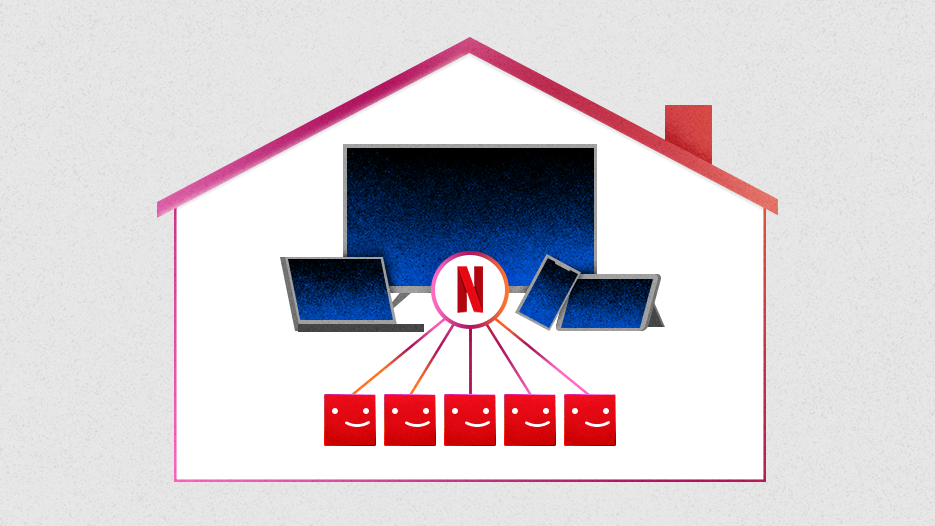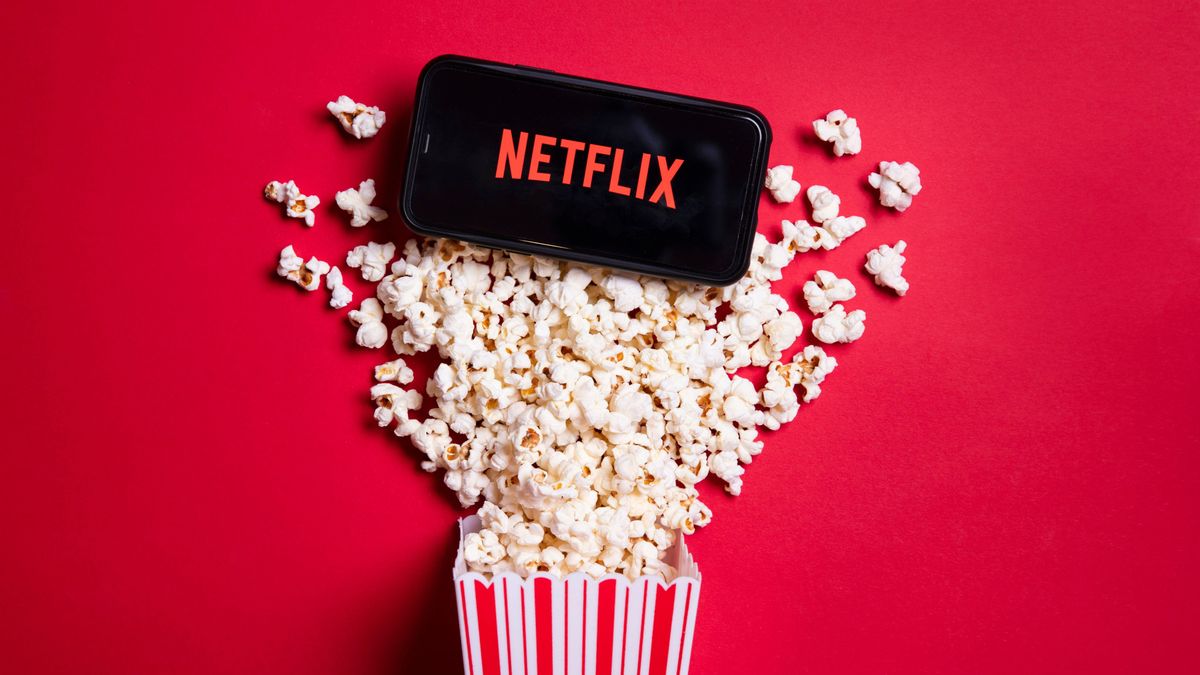Netflix has been warning us for some time that it’s going to be clamping down on users that are sharing their password and account with others. With its paid password-sharing scheme and tighter restrictions starting to roll out to new regions, free password-sharing could soon be a thing of the past. But how will Netflix stop it?
Netflix has explained that it wants users to stop sharing their accounts with others because the plethora of people not paying for its content are weakening its position as one of the best streaming services. Because these people are accessing the service without paying, they’re enjoying the best Netflix shows but failing to support the production of new series or improve the Netflix platform.
However, the change is not popular, with subscribers in parts of Latin and South America unhappy with the new paid password-sharing scheme that was trialed last year. On top of that, it’s not been entirely clear when password sharing is and isn’t okay, nor how Netflix will prevent it. We’re here to explain everything we know about how the policy will work but note that the rules below might change – as even before launch the official FAQ (opens in new tab) has changed three or four times; if this happens though we’ll update this page as soon as possible to keep you informed.
What are the Netflix password-sharing rules?
Under Netflix’s password-sharing rules it’s fine for multiple people to use and share one account provided they live together. So if you’re a family or a friendship group that lives together in the same home you’re golden; you can keep sharing your account as one Household.
However, if you’re part of a group that’s sharing a Netflix account and you don’t all live together then you’re no longer going to be allowed to do this. Well, not for free.
When the new restrictions are rolled out to your region, you’ll be asked to set a “primary location”, which Netflix will likely determine based on your device’s IP address (for more on that jump to the ‘How will Netflix stop password sharing?’ section below). Once this primary location is set, people who don’t live at it will have three options.
- Option 1: abandon Netflix forever
- Option 2: sign up for their own private Netflix account
- Option 3: pay an additional fee and become an “extra member” to the existing account
This extra member feature does offer users a few benefits – chief among them is that the fee is cheaper than paying for a Standard or Premium subscription – but it also comes with a few restrictions. Firstly, it’s only available for subscribers at the Standard and Premium tiers. Additionally, a Standard subscription can only have one extra member, while a Premium account can only have two extra members.
Where are Netflix’s password-sharing rules being enforced?
Netflix is getting stricter on password-sharing in every region where it operates. However, most of its current efforts seem to be focused on countries where users can pay for extra member sub-accounts. At the time of writing (February 9, 2023) these are:
- Canada
- Chile
- Costa Rica
- New Zealand
- Peru
- Portugal
- Spain
If you aren’t in one of these regions you may find you’re able to share your Netflix password with people from outside your Household without much trouble, but we expect it won’t be long before you’re forced to stop free-loading.
How will Netflix stop password sharing?
Right now, we don’t actually know exactly how Netflix will go about detecting and stopping password sharers. All we have to go on is previously available information that it has since removed from its official FAQ.
Earlier this year Netflix explained that it will use data such as “IP addresses, device IDs, and account activity from devices signed into the Netflix account” to determine if a Netflix user is part of an account’s Household. If Netflix determined that the user wasn’t part of the household – and may be trying to break its password-sharing rules – it would ask them to verify their device. A one-time code would be sent to the account’s registered phone number or email address and the user would have 15 minutes to input the code or be locked out from Netflix.
For a brief period of time, the rules were slightly different; instead of this verification method a user would instead need to sign into Netflix from the Household’s associated Wi-Fi connection “at least once every 31 days.” If this deadline passed you could only regain access by using a temporary seven-day code, by signing up for a new Netflix account, or by setting the device up as an account’s extra member. However, Netflix later clarified that these rules were posted in error and were only meant to apply to users in Chile, Costa Rica, and Peru – the only regions at the time that could pay for extra members.

However, after reverting the rules back to the email/text verification method the FAQ has changed again. If you visit the FAQ at the time of writing (February 9, 2023) you’ll now only see this brief statement in most regions:
“A Netflix account is meant to be shared in one household (people who live in the same location as the account owner). People who are not in your household will need to sign up for their own account to watch Netflix.”
In countries where you can pay for extra members – like Canada – you’ll find details for how that works, but that’s the only extra info you get.
When we reached out to Netflix to find out why the most recent changes were made to the FAQ it told us that the help center was too confusing before, so the information on it has been simplified. The information was certainly confusing – especially when it changed for about a day before the info reverted back to what it used to be – but it’s not all that helpful for the exact rules to be hidden.
We, therefore, suspect part of this change is also an effort to obscure the rules to keep people from finding ways to circumvent them. Under the email verification method, users would just need to set up a shared email account; while under the ‘use a specific Wi-Fi connection every 31 days’ method you’d just need to make sure to visit the account’s primary location regularly – if you live nearby that wouldn’t be a tough ask. By hiding the rules Netflix can alter its methods for detecting accounts that break its password-sharing rules without anyone knowing, and because of this it’ll likely be easier for the streamer to catch these accounts and get them to pay up.
How much is Netflix charging for password sharing?
If you want to keep sharing your Netflix account you’ll need to pay up, though we don’t currently know how much the extra member feature will cost in every region (particularly the US, UK, and Australia). This is partly because the price seems to be different everywhere it launches.
Here are the prices (per month) in the regions where the feature is available:
| Country | Cost per month (local currency) | Cost per month ($ / £ / AU$) |
|---|---|---|
| Canada | CA$7.99 | around $6 / £5 / AU$8.60 |
| Chile | 2,380 Chilean Pesos | around $3 / £2.50 / AU$4.30 |
| Costa Rica | US$2.99 | $2.99, around £2.50 / AU$4.30 |
| New Zealand | NZ$7.99 | around $5.10 / £4.20 / AU$7.29 |
| Peru | 7.9 Peruvian Sol | around $2 / £1.70 / AU$3 |
| Portugal | €3.99 | around $4.30 / £3.50 / AU$6.20 |
| Spain | €5.99 | around $6.40 / £5.30 / AU$9.26 |
Clearly, Netflix is using factors beyond straight currency conversion to determine how much an extra member costs in each region – otherwise Spain and Portugal would be paying the same amount for a start as they both use Euros. This means we’ll have to wait and see how high its extra member fees are when it introduces the feature in the US, UK, and Australia. Our ur best guess right now is that it’ll charge $7.99 / £7.99 / AU$7.99, but that’s currently just speculation.
While this estimate is more expensive than it is in other regions – and is certainly pricier than sharing the account for free – it is still cheaper than paying for a Premium tier subscription at $19.99 / £15.99 / AU$22.99.
What if I want to use my Netflix account on holiday?
If your account is associated with a specific Wi-Fi network and you then go away on holiday you might be worried that you’ll be locked out of Netflix from abroad.. Thankfully, the streamer has said its upcoming restrictions won’t stop you from accessing your favorite Netflix content while away from home for a limited time.
Exactly how it will do this is unclear, though it has previously outlined plans to use its email/phone verification method to grant access, and also a limited-use code that lets you access the service for seven days. Those ideas (along with its other public rules) have since been removed from its FAQ, so at the moment we’re not entirely sure what approach it’ll take to make sure you can stay connected to Netflix.
Will Netflix’s rule change stop me from using a VPN?
Over the past few years the best VPNs – or virtual private networks – have skyrocketed in popularity as they let you watch content that’s not available in your region’s version of Netflix.
When you access a website or online service while your VPN is active, your connection doesn’t head straight to the destination; instead, it first takes a detour through the VPN provider’s encrypted servers. When it does, the VPN is able to disguise your device’s real information (including its IP address) and use the server’s info instead – keeping your data private.
However, if Netflix wants to use a device’s info and IP address to verify if users are in a Household or not, it might not want them using tools that obscure this data. By using a VPN people who are not actually living together may be able to all connect to the same server and look like they are.
Currently, Netflix says that “you can use a VPN with Netflix on the Basic, Standard, or Premium plans” but there’s no telling if its stance will change if using a VPN does allow users to skirt around its new password-sharing policy. Potentially, it’ll just ask VPN users to verify their device every time they access Netflix, but it could take a much more hardline stance against VPN use. We’ll have to wait and see and will update this guide if Netflix’s stance on VPNs changes.
If you’re planning to leave Netflix when password-sharing restrictions are brought in then here are the best Netflix movies you need to watch before you unsubscribe. And if you’re thinking about joining one of its rivals then here are the best Disney Plus shows, and the best Prime Video movies that you might want to check out.
For all the latest Technology News Click Here
For the latest news and updates, follow us on Google News.

